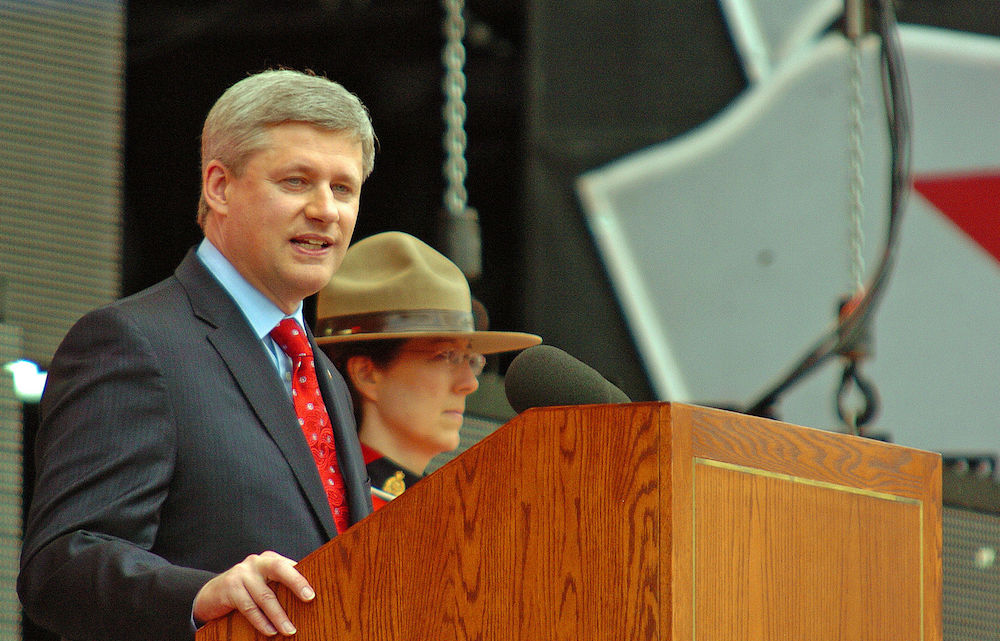Late last week, Conservative Party Leader Andrew Scheer was once again accusing Prime Minister Justin Trudeau and his Liberal government of wanting to phase out the oilsands, as he put it, and passing laws to put that putative plan into action.
Notwithstanding a lack of persuasive evidence, the popularity of this refrain here in Alberta never seems to wane.
Perhaps there’s a subtle distinction that escapes the uneducated layperson’s eye, but can someone in Scheer’s Conservative parliamentary caucus or Alberta Premier Jason Kenney’s United Conservative Party explain the difference between Trudeau’s restrictions on bitumen exports and Stephen Harper’s plan for the same thing?
Oh, I know, any real Albertan believes Prime Minister Trudeau’s bitumen export plan calls for our province’s vast resources to be land-locked and the Canadian economy destroyed in the name of airy-fairy environmentalism while former Conservative prime minister Harper’s plan was a wise blueprint for their prudent and environmentally friendly development to the benefit of all mankind.
Seriously, though, on closer examination — which is not easy amid the current nearly hysterical state of political discourse in Alberta fostered by our recent provincial election — it would appear there’s not actually a lot of light between Trudeau’s plan now and that of Harper back in the day.
Leastways, 11 odd years ago, in September 2008, the Reuters News Agency was mildly complaining that Harper’s plan “would ban exports of tar-like bitumen from Alberta’s oilsands to countries that do not match Canada’s efforts to cut carbon emissions.”
Say what!?
According to Reuters, both the fossil fuel industry and environmentalists were “perplexed” by this Conservative Party of Canada policy. The environmentalists because they didn’t feel it went far enough, especially with regards to Canada’s own emissions, and the industry because it claimed it needed more time to study the details.
Still, reading between the lines, it was clear that the spokesperson for Enbridge, whose Northern Gateway Pipeline proposal was then still a thing, didn’t much like the idea of any restrictions whatsoever.
As for the unrestricted access to Asian markets that we Albertans have all now been persuaded we simply must have, Harper was blunt, telling journalists in Ottawa that, in the words of the Reuters reporter, his policy “could affect Asian countries that are the target of a proposed Enbridge pipeline that would move oil sands-derived crude to Canada’s West Coast to be shipped across the Pacific Ocean by tanker.”
Of course, at the time Harper was campaigning for re-election and hoping to turn his Conservative minority in Parliament into a majority. Perhaps he hoped to woo some Canadians who wanted both economic expansion and caps on carbon emissions into his camp — you know, very much like what Trudeau is trying to do right now, and certainly what former Alberta NDP premier Rachel Notley’s government was also trying to achieve.
Jack Layton, by the way, who was then the leader of the NDP, called this balancing act “absurd.” He wondered how Harper could propose emissions caps for countries that might want to import Canadian bitumen when he wasn’t willing to set any here in Canada.
Well, whatever. The point is, there’s not really much difference between what Harper was proposing then and what Trudeau is doing now. This is true regardless of unfounded claims to the contrary now appearing regularly in once respectable newspapers like the Calgary Herald, which ought to know better.
Then, the idea that Ottawa might dare to control where Alberta could export its bitumen, for environmental reasons no less, caused barely a murmur of protest on the right. Now we have a Conservative politicians talking seriously about how the same thing is a grave threat to national unity.
How can Trudeau’s modest environmental measures in the context of aggressive development of the oilsands and pipeline infrastructure be tantamount to treason, according to people like Premier Kenney, while Harper’s were a guarantee of environmental common sense and long-term Canadian prosperity?
What’s changed, in other words?
Well, for the better part of the last decade we’ve been on the receiving end of an unremitting, well-funded campaign by the fossil fuel industry that without pipelines to all points of the compass, our economy is doomed. A good part of the funds for this campaign, I daresay, came from foreign sources.
Our provincial governments, Conservative and NDP alike, enthusiastically joined this clamour. They have claimed repeatedly Alberta must, simply must, have unlimited and unrestricted pipeline access to Canada’s coastlines east and west so that we can find new markets for our underpriced oilsands crude, never mind the law of supply and demand.
But the only truly significant thing that is different at this moment, I would suggest, is simply this: there’s a Liberal government in Ottawa.
That, in turn, suggests that all this hysteria amounts to a cynical and dishonest political campaign on behalf of the Conservative Party of Canada. And if this campaign ends up actually threatening Canadian unity, those Conservatives don’t care a fig!
On this topic, I suspect too many of my fellow Albertans are too far gone for redemption. But other Canadians ought not to be fooled.
David Climenhaga, author of the Alberta Diary blog, is a journalist, author, journalism teacher, poet and trade union communicator who has worked in senior writing and editing positions with The Globe and Mail and the Calgary Herald. This post also appears on David Climenhaga’s blog, AlbertaPolitics.ca.
Image: Wikimedia Commons



